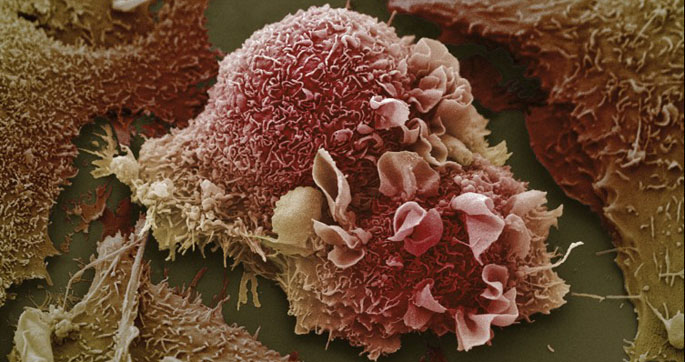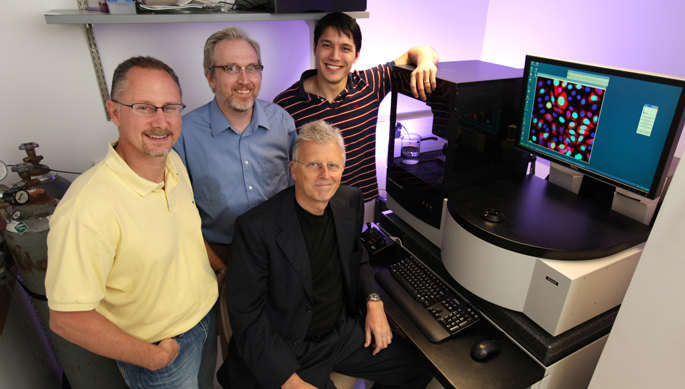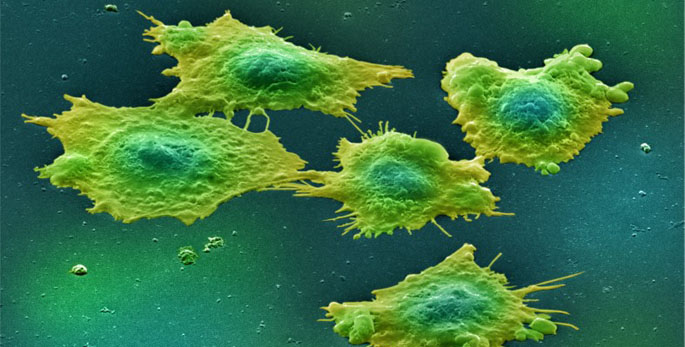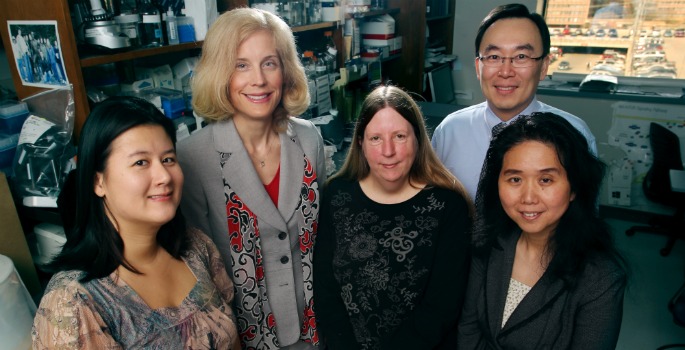Personalized Cancer Medicine
-

Optical imaging in drug therapy screens
A non-invasive imaging tool could test potential cancer therapies quickly to personalize therapy for patients. Read MoreOct 1, 2014
-

PET probe detects dying tumor cells
A novel PET imaging probe detects tumor cell death in vivo and could be useful for personalizing cancer medicine. Read MoreMay 8, 2014
-

Probing mutant EGF receptor regulation
Understanding the regulation of mutant EGF receptors commonly found in lung cancers could lead to new targeted therapies. Read MoreOct 10, 2013
-

Photo: Building support
Representatives from longtime supporter Balfour Beatty Construction visited the Medical Center recently to present an additional gift in support of the existing Balfour Beatty Research Fund for Personalized Cancer Medicine. Read MoreSep 19, 2013
-

Method may refine personalized trials for cancer therapy
A new tool to observe cell behavior has revealed surprising clues about how cancer cells respond to therapy, and may offer a way to further refine personalized cancer treatments. Read MoreAug 16, 2012
-

VICC adds colon cancer to gene mutation testing
Vanderbilt-Ingram Cancer Center has initiated tumor mutation testing for a limited number of patients with metastatic colorectal cancer. Read MoreJul 19, 2012
-

New drug mutes more melanomas
An experimental melanoma drug may be beneficial for patients not eligible for targeted therapies. Read MoreApr 26, 2012
-

Stanley Cohen’s Nobel Prize: 25 years of progress
Twenty-five years after he received the Nobel Prize, Stanley Cohen’s discovery of epidermal growth factor continues to transform medicine. Read MoreDec 9, 2011
-

Study suggests new lung cancer therapy schedule
A new lung cancer study led by Vanderbilt-Ingram Cancer Center investigators found that various non-small cell lung cancer cells grow at different rates, which may explain why some tumors become resistant to anti-cancer drugs faster than others. Read MoreAug 10, 2011
-

Gene ‘signature’ may predict cancer outcomes
A gene signature may be useful in predicting outcomes for patients with rhabdomysarcoma, a form of cancer most commonly diagnosed in children. Read MoreMar 25, 2011